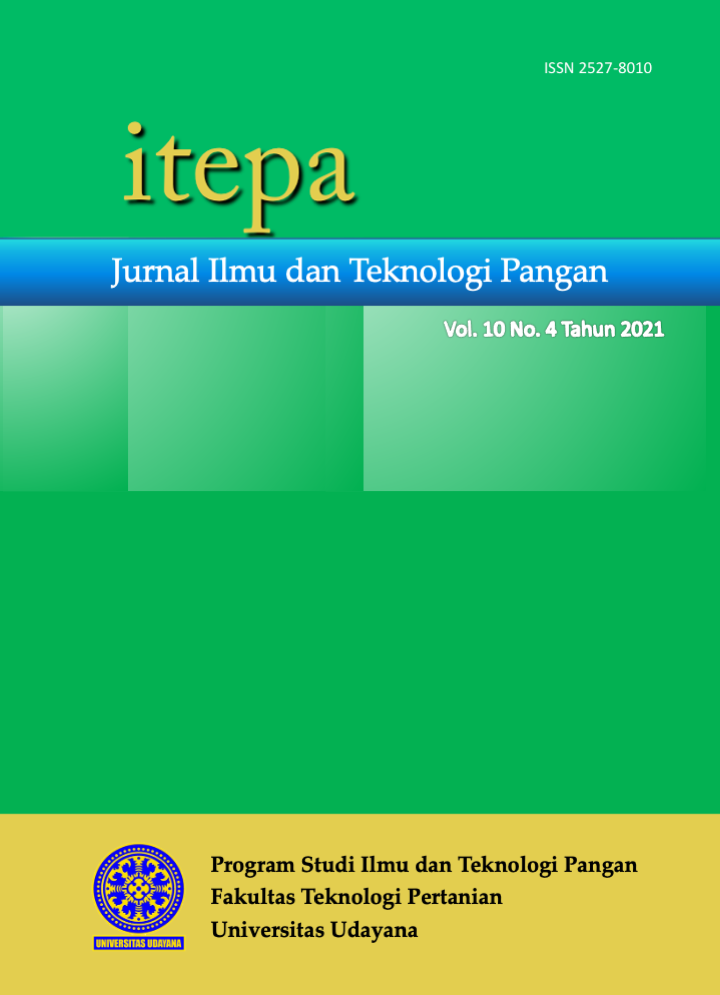Cemaran Mikroba pada Bubuk Temu Putih (Curcuma zedoaria (Berg) Roscoe) dalam Kantung Teh Celup selama Penyimpanan Suhu Ruang
Abstract
The zedoary rizome (Curcuma Zedoaria (Berg) Roscoe) has a curcumin compound, which is one of the active compounds in the rhizome. Fresh zedoary rizome is easily damaged so it is often preserved by drying it. This research was aimed to determine the microbial contamination of the zedoary rizome packed in tea bags during storage in a room temperature. This research used Completely Randomized Design with storage at room temperature as a treatments, which consisted of 5 levels: 0 days, 7 days, 14 days, 21 days and 28 days. With 3 replication to obtain 15 units of sample. Data were analyzed by Analysis of Variance (ANOVA) and followed by multiple comparison test of Duncan Multiple Range Test (DMRT). The result showed that during storage, there were carasteristics changes in zedoary rizome powder such as increased of total plate count, total mold and yeast count, coliform and water content, but there was no E. coli growth. The zedoary rizome powder in tea bags during storage on days 0 to 28 fulfilled the requirements for food safety because microbial growth is below the maximum limit of Indonesian National Standard (SNI), but the water content on days 14 to 28 does not meet the SNI requirements.





